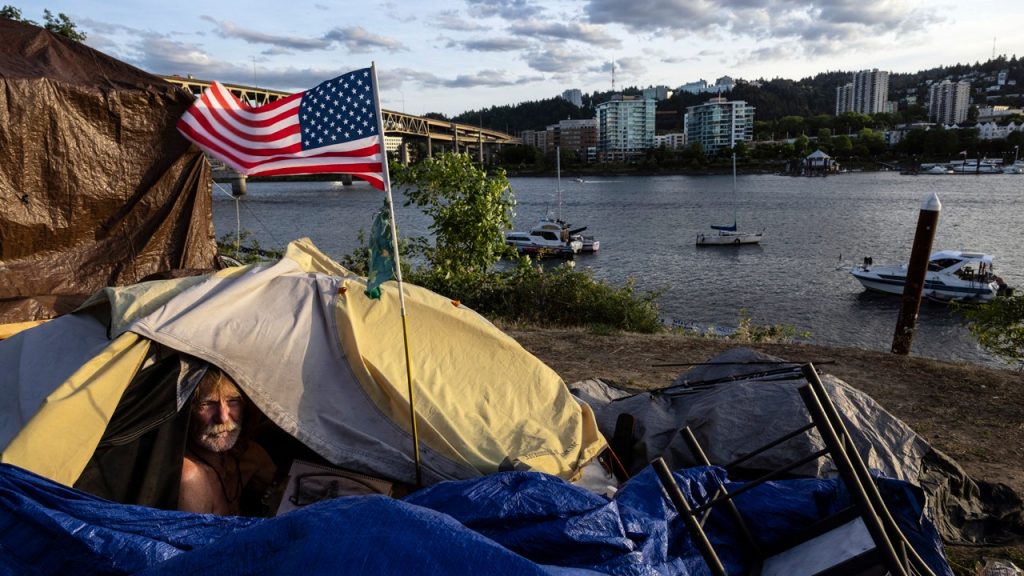The City Council in Portland, Oregon, has passed new rules that allow fines of up to $100 or up to seven days in jail for homeless people who camp on public property and refuse offers of shelter. The penalties also apply to individuals who block sidewalks, use gas heaters or start fires, or have belongings more than 2 feet outside of their tents. The ordinance, which goes into effect immediately, aims to manage public spaces more effectively in response to the crisis of unsheltered homelessness in the city.
According to Mayor Ted Wheeler’s office, those who accept offers of shelter will not be cited under the new rules. The courts will determine whether to waive fines for those who are cited, with a focus on diverting individuals to assessment, emergency shelter, or housing instead of jail. The ordinance is designed to comply with a state law requiring cities to have “objectively reasonable” restrictions on public camping. A previous, stricter version of the ordinance that banned camping during daylight hours has been put on hold while a lawsuit filed by advocates on behalf of homeless people moves through the courts.
The ongoing struggle to address growing homeless encampments in Portland and other cities in the U.S. West has led many officials to seek ways to manage encampments for public safety and sanitation. However, advocacy groups argue that people experiencing homelessness should not face criminal punishment for their lack of housing. The U.S. Supreme Court is currently considering a case from the small Oregon town of Grants Pass on whether cities can penalize people for sleeping outside when shelter space is unavailable. The case could have significant implications for addressing homelessness nationwide.
The new rules in Portland come amid record levels of homelessness across the country and highlight the challenges cities face in balancing public safety concerns with the need to provide compassionate and effective solutions for people experiencing homelessness. The enforcement of these rules, which is expected to begin in the coming weeks, reflects a broader debate about how to appropriately address the complex issue of homelessness and access to stable housing. Mayor Wheeler’s office has emphasized the importance of finding alternative solutions to incarceration for homeless individuals while working to manage public spaces.
Ultimately, the ordinance in Portland represents a step forward in the city’s efforts to address the crisis of unsheltered homelessness and manage public spaces more effectively. By focusing on diversion to shelter or housing options rather than jail time, the city aims to provide more compassionate and practical responses to the needs of individuals experiencing homelessness. The outcome of the legal challenges to the ordinance and the broader debate on homelessness policy in the U.S. will likely have far-reaching implications for how cities address this pressing social issue in the future.


